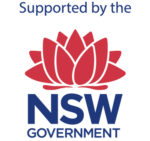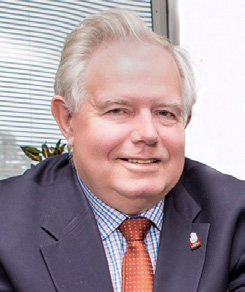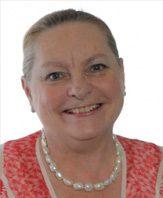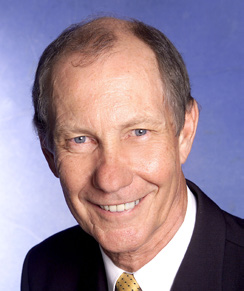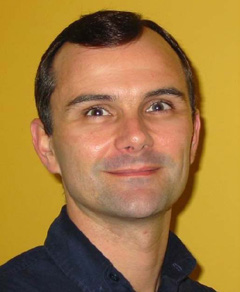APF24 Complementary Medicines Monographs Reference List
1. Therapeutic Goods Administration. Complementary medicines. 2017. At: www.tga.gov.au/complementary-medicines
2. Braun L, Cohen M. Herbs and natural supplements: an evidence-based guide. 4th edn. Chatswood: Elsevier; 2015.
3. Cancer Council Australia. Position statement: complementary and alternative therapies. 2013. At: http://wiki.cancer.org.au/policy/Position_statement_-_Complementary_and_alternative_therapies
4. Therapeutic Goods Administration. Complementary medicines reforms. 2017. At: www.tga.gov.au/complementary-medicines-reforms
5. World Health Organization. Traditional, complementary and integrative medicine. 2017. At: www.who.int/traditional-complementary-integrative-medicine/en
6. Byard RW, Musgrave I, Maker G, et al. What risks do herbal products pose to the Australian community? Med J Aust 2017;206(2):86–90.
7. Royal Pharmaceutical Society of Great Britain. Herbal medicines. 4th edn. London: Pharmaceutical Press; 2013.
8. Therapeutic Goods Administration. Complementary medicine presentation. 2016. At: www.tga.gov.au/book-page/complementary-medicine-presentation
9. Australian Government. Therapeutic Goods Advertising Code. 2015. At: www.tga.gov.au/publication/therapeutic-goods-advertising-code
10. MacLennan AH. Four harms of harmless therapies. Climacteric 1999;2(2):73–4.
11. Memorial Sloan Kettering Cancer Center. Cancer care. 2017. At: www.mskcc.org/cancer-care
12. United States Department of Health and Human Services. National Center for Complementary and Integrative Health. 2017. At: https://nccih.nih.gov
13. Australian and New Zealand College of Anaethestists. Herbal and dietary supplements. 2017. At: www.anzca.edu.au/patients/frequently-asked-questions/herbal-and-dietary-supplements
14. Frawley J, Adams J, Sibbritt D, et al. Prevalence and determinants of complementary and alternative medicine use during pregnancy: results from a nationally representative sample of Australian pregnant women. Aust N Z J Obstet Gynaecol 2013;53(4):347–52.
15. Pharmaceutical Society of Australia. Position statement: complementary medicines. 2015. At: www.psa.org.au/policies/complementary-medicines
16. Pharmaceutical Society of Australia. Code of ethics for pharmacists. Canberra: PSA; 2017.
17. National Health and Medical Research Council. Statement on homeopathy. 2015. At: www.nhmrc.gov.au/_files_nhmrc/publications/attachments/cam02_nhmrc_statement_homeopathy.pdf
18. Gregory PJ. Natural medicines. 2017. At: https://naturalmedicines.therapeuticresearch.com
19. Wooltorton E. Too much of a good thing? Toxic effects of vitamin and mineral supplements. CMAJ 2003;169(1):47–8.
20. Saxena RC, Singh R, Kumar P, et al. A randomized double blind placebo controlled clinical evaluation of extract of Andrographis paniculata (KalmCold) in patients with uncomplicated upper respiratory tract infection. Phytomedicine 2010;17(3–4):178–85.
21. Coon JT, Ernst E. Andrographis paniculata in the treatment of upper respiratory tract infections: a systematic review of safety and efficacy. Planta Med 2004;70(4):293–8.
22. Poolsup N, Suthisisang C, Prathanturarug S, et al. Andrographis paniculata in the symptomatic treatment of uncomplicated upper respiratory tract infection: systematic review of randomized controlled trials. J Clin Pharm Ther 2004;29(1):37–45.
23. Therapeutic Goods Administration. Products containing Andrographis paniculata. Safety advisory: risk of allergic reactions. 2015. At: www.tga.gov.au/alert/products-containing-andrographis-paniculata
24. Williamson E, Driver S, Baxter K, eds. Stockley’s herbal medicines interactions. 2nd edn. London: Pharmaceutical Press; 2013.
25. Memorial Sloan Kettering Cancer Center. About herbs, botanicals and other products. 2017. At: www.mskcc.org/cancer-care/diagnosis-treatment/symptom-management/integrative-medicine/herbs
26. Ma HY, Sun DX, Cao YF, et al. Herb-drug interaction prediction based on the high specific inhibition of andrographolide derivatives towards UDP-glucuronosyltransferase (UGT) 2B7. Toxicol Appl Pharmacol 2014;277(1):86–94.
27. Wider B, Pittler MH, Thompson-Coon J, et al. Artichoke leaf extract for treating hypercholesterolaemia. Cochrane Database of Systematic Reviews 2013, Issue 3.
28. Rondanelli M, Giacosa A, Morazzoni P, et al. MediterrAsian diet products that could raise HDL-cholesterol: a systematic review. Biomed Res Int 2016;Epub 2016 Nov 1.
29. Chen MH, May BH, Zhou IW, et al. Integrative medicine for relief of nausea and vomiting in the treatment of colorectal cancer using oxaliplatin-based chemotherapy: a systematic review and meta-analysis. Phytother Res 2016;30(5):741–53.
30. Tian QE, De Li H, Yan M, et al. Effects of Astragalus polysaccharides on P-glycoprotein efflux pump function and protein expression in H22 hepatoma cells in vitro. BMC Complement Altern Med 2012;12:94.
31. Zhou Q, Ye Z, Ruan Z, et al. Investigation on modulation of human P-gp by multiple doses of Radix Astragali extract granules using fexofenadine as a phenotyping probe. J Ethnopharmacol 146(3):744–9.
32. Brayfield A, eds. Martindale: the complete drug reference. London: Pharmaceutical Press; 2017.
33. Fuchikami H, Satoh H, Tsujimoto M, et al. Effects of herbal extracts on the function of human organic anion-transporting polypeptide OATP-B. Drug Metab Dispos 2006;34(4):577–82.
34. Beer AM, Neff A. Differentiated evaluation of extract-specific evidence on Cimicifuga racemosa’s efficacy and safety for climacteric complaints. Evid Based Complement Alternat Med 2013; Epub 2013 Aug 25.
35. Fritz H, Seely D, McGowan J, et al. Black cohosh and breast cancer: a systematic review. Integr Cancer Ther 2014;13(1):12–29.
36. Franco OH, Chowdhury R, Troup J, et al. Use of plant-based therapies and menopausal symptoms: a systematic review and meta-analysis. JAMA 2016;315(23):2554–63.
37. Therapeutic Goods Administration. Black cohosh (Cimicifuga racemosa). 2007. At: www.tga.gov.au/alert/black-cohosh-cimicifuga-racemosa
38. Leach MJ, Moore V. Black cohosh (Cimicifuga spp.) for menopausal symptoms. Cochrane Database of Systematic Reviews 2012, Issue 9.
39. Rockwell S, Liu Y, Higgins SA. Alteration of the effects of cancer therapy agents on breast cancer cells by the herbal medicine black cohosh. Breast Cancer Res Treat 2005;90(3):233–9.
40. Einbond LS, Shimizu M, Nuntanakorn P, et al. Actein and a fraction of black cohosh potentiate antiproliferative effects of chemotherapy agents on human breast cancer cells. Planta Med 2006;72(13):1200–6.
41. Royal Women’s Hospital. Herbal and traditional medicines in pregnancy. 2013. At: www.thewomens.org.au/patients-visitors/clinics-and-services/support-services/medicines-information
42. Royal Women’s Hospital. Herbal and traditional medicines in breastfeeding. 2013. At: www.thewomens.org.au/patients-visitors/clinics-and-services/support-services/medicines-information
43. Oltean H, Robbins C, van-Tulder MW, et al. Herbal medicine for low-back pain. Cochrane Database of Systematic Reviews 2014, Issue 12.
44. Griebeler ML, Morey-Vargas OL, Brito JP, et al. Pharmacologic interventions for painful diabetic neuropathy: an umbrella systematic review and comparative effectiveness network meta-analysis. Ann Intern Med 2014;161(9):639–49.
45. Derry S, Rice AS, Cole P, et al. Topical capsaicin (high concentration) for chronic neuropathic pain in adults. Cochrane Database of Systematic Reviews 2017, Issue 1.
46. Yong YL, Tan LT, Ming LC, et al. The effectiveness and safety of topical capsaicin in postherpetic neuralgia: a systematic review and meta-analysis. Front Pharmacol 2016;7:538.
47. eMIMS cloud. Sydney: MIMS Australia; 2017.
48. Hakas JF. Topical capsaicin induces cough in patient receiving ACE inhibitor. Ann Allergy 1990;65:322–3.
49. Zhu HD, Gu N, Wang M, et al. Effects of capsicine on rat cytochrome P450 isoforms CYP1A2, CYP2C19, and CYP3A4. Drug Dev Ind Pharm 2015;41(11):1824–8.
50. Han Y, Tan TM, Lim LY. Effects of capsaicin on P-gp function and expression in Caco-2 cells. Biochem Pharmacol 2006;71(12):1727–34.
51. Toxicology Data Network. LactMed database. 2017. At: https://toxnet.nlm.nih.gov
52. Derry S, Sven-Rice A, Cole P, et al. Topical capsaicin (high concentration) for chronic neuropathic pain in adults. Cochrane Database of Systematic Reviews 2013, Issue 2.
53. Puig L, de-Moraqas JM. Enhancement of PUVA phototoxic effects following celery ingestion: cool broth also can burn. Arch Dermatol 1994;130(6):809–10.
54. Peterson S, Lampe JW, Bammler TK, et al. Apiaceous vegetable constituents inhibit human cytochrome P-450 1A2 (hCYP1A2) activity and hCYP1A2-mediated mutagenicity of aflatoxin B1. Food Chem Toxicol 2006;44(9):1474–84.
55. Moses G. Thyroxine interacts with celery seed tablets? Aust Prescr 2001;24:6–7.
56. Melzer J, Rösch W, Reichling J, et al. Meta-analysis: phytotherapy of functional dyspepsia with the herbal drug preparation STW 5 (Iberogast). Aliment Pharmacol Ther 2004;20(11–12):1279–87.
57. Ottillinger B, Storr M, Malfertheiner P, et al. STW 5 (Iberogast): a safe and effective standard in the treatment of functional gastrointestinal disorders. Wien Med Wochenschr 2013;163(3–4):65–72.
58. eTG complete. Melbourne: Therapeutic Guidelines; 2017.
59. Madisch A, Holtmann G, Plein K, et al. Treatment of irritable bowel syndrome with herbal preparations: results of a double-blind, randomized, placebo-controlled, multi-centre trial. Aliment Pharmacol Ther 2004;19(3):271–9.
60. Segal R, Pilote L. Warfarin interaction with Matricaria chamomilla. CMAJ 2006;174(9):1281–2.
61. Kassi E, Papoutsi Z, Fokialakis N, et al. Greek plant extracts exhibit selective estrogen receptor modulator (SERM)-like properties. J Agric Food Chem 2004;52(23):6956–61.
62. Sridharan S, Archer N, Manning N. Premature constriction of the fetal ductus arteriosus following the maternal consumption of camomile herbal tea. Ultrasound Obstet Gynecol 2009;34(3):358–9.
63. Brayfield A, ed. Martindale: the complete drug reference. London: Pharmaceutical Press. At: www.medicinescomplete.com
64. van Die MD, Burger HG, Teede HJ, et al. Vitex agnus-castus extracts for female reproductive disorders: a systematic review of clinical trials. Planta Med 2013;79(7):562–75.
65. Jang SH, Kim DI, Choi MS. Effects and treatment methods of acupuncture and herbal medicine for premenstrual syndrome/premenstrual dysphoric disorder: systematic review. BMC Complement Altern Med 2014;14:11.
66. Braun L, Cohen M. Herbs and natural supplements: an evidence based guide. 3rd edn. Elsevier; 2010.
67. Dugoua JJ, Seely D, Perri D, et al. Safety and efficacy of chastetree (Vitex agnus-castus) during pregnancy and lactation. Can J Clin Pharmacol 2008;15(1):e74–79.
68. Banach M, Serban C, Ursoniu S, et al. Statin therapy and plasma coenzyme Q10 concentrations: a systematic review and meta-analysis of placebo-controlled trials. Pharmacol Res 2015;99:329–36.
69. Bank G, Kagan D, Madhavi D. Coenzyme Q10: clinical update and bioavailability. J Evid Based Complementary Altern Med 2011;16(2):129–37.
70. Fotino AD, Thompson-Paul AM, Bazzano LA. Effect of coenzyme Q₁₀ supplementation on heart failure: a meta-analysis. Am J Clin Nutr 2013;97(2):268–75.
71. Madmani ME, Yusuf Solaiman A, Tamr Agha K, et al. Coenzyme Q10 for heart failure. Cochrane Database of Systematic Reviews 2014, Issue 6.
72. Mortensen SA, Rosenfeldt F, Kumar A, et al. The effect of coenzyme Q10 on morbidity and mortality in chronic heart failure: results from Q-SYMBIO: a randomized double-blind trial. JACC Heart Fail 2014;2(6):641–9.
73. Ho MJ, Li ECK, Wright JM. Blood pressure lowering efficacy of coenzyme Q10 for primary hypertension. Cochrane Database of Systematic Reviews 2016, Issue 3.
74. Hernandez-Ojeda J, Cardona-Munoz EG, Roman-Pintos LM, et al. The effect of ubiquinone in diabetic polyneuropathy: a randomized double-blind placebo-controlled study. J Diabetes Complications 2012;26(4):352–8.
75. Fakhrabadi A, Ghotrom AZ, Mozaffari-Khosravi H, et al. Effect of coenzyme Q10 on oxidative stress, glycemic control and inflammation in diabetic neuropathy: a double blind randomized clinical trial. Int J Vitam Nutr Res 2014;84(5–6):252–60.
76. Negida A, Menshawy A, Ashal GE, et al. Coenzyme Q10 for patients with Parkinson’s disease: a systematic review and meta-analysis. CNS Neurol Disord Drug Targets 2016;15(1):45–53.
77. Zhu ZG, Sun MX, Zhang WL, et al. The efficacy and safety of coenzyme Q10 in Parkinson’s disease: a meta-analysis of randomized controlled trials. Neurol Sci 2017;38(2):215–24.
78. Banach M, Serban C, Sahebkar A, et al. Effects of coenzyme Q10 on statin-Induced myopathy: a meta-analysis of randomized controlled trials. Mayo Clin Proc 2015;90(1):24–34.
79. Therapeutic Goods Administration. Complementary Medicines Evaluation Committee extracted ratified minutes, 11th meeting. 1999. At: www.tga.gov.au/sites/default/files/cmec-minutes-11.pdf
80. Baskaran R, Shanmugam S, Nagayya-Sriraman S, et al. The effect of coenzyme Q10 on the pharmacokinetic parameters of theophylline. Arch Pharm Res 2008;31(7):938–44.
81. DiNicolantonio JJ, Bhutani J, McCarty MF, et al. Coenzyme Q10 for the treatment of heart failure: a review of the literature. Open Heart 2015;2:e000326.
82. Liska DJ, Kern HJ, Maki KC. Cranberries and urinary tract infections: how can the same evidence lead to conflicting advice? Adv Nutr 2016;7(3).
83. Jepson RG, Williams G, Craig JC. Cranberries for preventing urinary tract infections. Cochrane Database of Systematic Reviews 2012, Issue 10.
84. Durham SH, Stamm PL, Eiland LS. Cranberry products for the prophylaxis of urinary tract infections in pediatric patients. Ann Pharmacother 2015;49(12):1349–56.
85. Maki KC, Kaspar KL, Khoo C, et al. Consumption of a cranberry juice beverage lowered the number of clinical urinary tract infection episodes in women with a recent history of urinary tract infection. Am J Clin Nutr 2016;103(6):1434–42.
86. Jepson RG, Mihaljevic L, Craig JC. Cranberries for treating urinary tract infections. Cochrane Database of Systematic Reviews 1998, Issue 4.
87. Mohammed Abdul MI, Jiang X, Williams KM, et al. Pharmacodynamic interaction of warfarin with cranberry but not with garlic in healthy subjects. Br J Pharmacol 2008;154(8):1691–700.
88. Royal Women’s Hospital. Pregnancy and breastfeeding medicines guide. 2017. At: www.thewomenspbmg.org.au
89. Dugoua J, Seely D, Perri D, et al. Safety and efficacy of cranberry (vaccinium macrocarpon) during pregnancy and lactation. Can J Clin Pharmacol 2008;15(1):e80–6.
90. Davis SR, Panjari M, Stanczyk FZ. DHEA replacement for postmenopausal women. J Clin Endocrinol Metab 2011;96(6):1642–53.
91. Therapeutic Goods Administration. Personal importation scheme. 2015. At: www.tga.gov.au/personal-importation-scheme
92. World Anti-Doping Agency. List of prohibited substances and methods. 2017. At: www.wada-ama.org/en/prohibited-list
93. Scheffers CS, Armstrong S, Cantineau AE, et al. Dehydroepiandrosterone for women in the peri- or postmenopausal phase. Cochrane Database of Systematic Reviews 2015, Issue 1.
94. Labrie F, Archer DF, Koltun W, et al. Efficacy of intravaginal dehydroepiandrosterone (DHEA) on moderate to severe dyspareunia and vaginal dryness, symptoms of vulvovaginal atrophy, and of the genitourinary syndrome of menopause. Menopause 2016;23(3):243–56.
95. Nagels HE, Rishworth JR, Siristatidis CS, et al. Androgens (dehydroepiandrosterone or testosterone) for women undergoing assisted reproduction. Cochrane Database of Systematic Reviews 2015, Issue 11.
96. Peixoto C, Devicari-Cheda JN, Nardi AE, et al. The effects of dehydroepiandrosterone (DHEA) in the treatment of depression and depressive symptoms in other psychiatric and medical illnesses: a systematic review. Curr Drug Targets 2014;15(9):901–14.
97. Corrigan AB. Dehydroepiandrosterone and sport. Med J Aust 1999;171(4):206–8.
98. Jenkinson D, Harbert A. Supplements and sports. Am Fam Physician 2008;78(9):1039–46.
99. Thompson R, Carlson M. Liquid chromatographic determination of dehydroepiandrosterone (DHEA) in dietary supplement products. J AOAC Int 2000;83(4):847–57.
100. Kim C, Halter JB. Endogenous sex hormones, metabolic syndrome, and diabetes in men and women. Curr Cardiol Rep 2014;16(4):467.
101. Labrie F, Diamond P, Cusan L, et al. Effect of 12-month dehydroepiandrosterone replacement therapy on bone, vagina, and endometrium in postmenopausal women. J Clin Endocrinol Metab 1997;82(10):3498–505.
102. Brien S, Lewith GT, McGregor G. Devil’s claw (Harpagophytum procumbens) as a treatment for osteoarthritis: a review of efficacy and safety. J Altern Complement Med 2006;12(10):981–93.
103. Chrubasik JE, Roufogalis BD, Chrubasik S. Evidence of effectiveness of herbal antiinflammatory drugs in the treatment of painful osteoarthritis and chronic low back pain. Phytother Res 2007;21(7):675–83.
104. Devil’s claw root: ulcers and gastrointestinal bleeding? Prescrire Int 2013;22(144):296.
105. Cuspidi C, Sala C, Tadic M, et al. Systemic hypertension induced by Harpagophytum procumbens (devil’s claw): a case report. J Clin Hypertens (Greenwich) 2015;17(11):908–10.
106. Shaw D, Leon C, Kolev S, et al. Traditional remedies and food supplements: a 5-year toxicological study (1991–1995). Drug Saf 1997;17:342–56.
107. Zielinsky P, Busato S. Prenatal effects of maternal consumption of polyphenol-rich foods in late pregnancy upon fetal ductus arteriosus. Birth Defects Res C Embryo Today 2013;99(4):256–74.
108. Shou C, Li J, Liu Z. Complementary and alternative medicine in the treatment of menopausal symptoms. Chin J Integr Med 2011;17(12):883–8.
109. Yu C, Chai X, Yu L, et al. Identification of novel pregnane X receptor activators from traditional Chinese medicines. J Ethnopharmacol 2011;136(1):137–43.
110. Sevior DK, Hokkanen J, Tolonen A, et al. Rapid screening of commercially available herbal products for the inhibition of major human hepatic cytochrome P450 enzymes using the N-in-one cocktail. Xenobiotica 2010;40(4):245–54.
111. Karsch-Völk M, Barrett B, Kiefer D, et al. Echinacea for preventing and treating the common cold. Cochrane Database of Systematic Reviews 2014, Issue 2.
112. Schapowal A, Klein P, Johnston SL. Echinacea reduces the risk of recurrent respiratory tract infections and complications: a meta-analysis of randomized controlled trials. Adv Ther 2015;32(3):187–200.
113. Ardjomand-Woelkart K, Bauer R. Review and assessment of medicinal safety data of orally used echinacea preparations. Planta Med 2016;82(1–2):17–31.
114. Gorski JC, Huang SM, Pinto A. The effect of echinacea (Echinacea purpurea root) on cytochrome P450 activity in vivo. Clin Pharmacol Ther 2004;75(1):89–100.
115. Hermann R, Richter OV. Clinical evidence of herbal drugs as perpetrators of pharmacokinetic drug interactions. Planta Med 2012;78(13):1458–77.
116. Liu R, Tam TW, Mao J, et al. The effect of natural health products and traditional medicines on the activity of human hepatic microsomal-mediated metabolism of oseltamivir. J Pharm Pharm Sci 2010;13(1):43–55.
117. Qiang Z, Hauck C, McCoy JA, et al. Echinacea sanguinea and Echinacea pallida extracts stimulate glucuronidation and basolateral transfer of Bauer alkamides 8 and 10 and ketone 24 and inhibit P-glycoprotein transporter in Caco-2 cells. Planta Med 2013;79:266–74.
118. Gurley BJ, Swain A, Williams DK, et al. Gauging the clinical significance of P-glycoprotein-mediated herb–drug interactions: comparative effects of St John’s wort, Echinacea, clarithromycin, and rifampin on digoxin pharmacokinetics. Mol Nutr Food Res 2008;52(7):772–9.
119. Organization of Teratology Information Specialists. Echinacea preparations. 2014. At: https://mothertobaby.org/fact-sheets-parent/
120. Heitmann K, Havnen GC, Holst L, et al. Pregnancy outcomes after prenatal exposure to echinacea: the Norwegian Mother and Child Cohort Study. Eur J Clin Pharmacol 2016;72(5):623–30.
121. Bamford JTM, Ray S, Musekiwa A, et al. Oral evening primrose oil and borage oil for eczema. Cochrane Database of Systematic Reviews 2013, Issue 6.
122. Dante G, Facchinetti F. Herbal treatments for alleviating premenstrual symptoms: a systematic review. J Psychosom Obstet Gynaecol 2011;32(1):42–51.
123. Cameron M, Gagnier JJ, Chrubasik S. Herbal therapy for treating rheumatoid arthritis. Cochrane Database of Systematic Reviews 2011, Issue 2.
124. Puri BK. The safety of evening primrose oil in epilepsy. Prostaglandins Leukot Essent Fatty Acids 2007;77(2):101–3.
125. Dove D, Johnson P. Oral evening primrose oil: its effect on length of pregnancy and selected intrapartum outcomes in low-risk nulliparous women. J Nurse Midwifery 1999;44(3):320–4.
126. Wedig KE, Whitsett JA. Down the primrose path: petechiae in a neonate exposed to herbal remedy for parturition. J Pediatr 2008;152(1):140.
127. Wider B, Pittler MH, Ernst E. Feverfew for preventing migraine. Cochrane Database of Systematic Reviews 2015, Issue 4.
128. Holland S, Silberstein SD, Freitag F, et al. Evidence-based guideline update: NSAIDs and other complementary treatments for episodic migraine prevention in adults. Neurology 2012;78(17):1346–53.
129. Loder E, Burch R, Rizzoli P. The 2012 AHS/AAN guidelines for prevention of episodic migraine: a summary and comparison with other recent clinical practice guidelines. Headache 2012;52(6):930–45.
130. Johnson ES, Kadam NP, Hylands DM, et al. Efficacy of feverfew as prophylactic treatment of migraine. Br Med J (Clin Res Ed) 1985;291(6495):569–73.
131. Unger M, Frank A. Simultaneous determination of the inhibitory potency of herbal extracts on the activity of six major cytochrome P450 enzymes using liquid chromatography/mass spectrometry and automated online extraction. Rapid Commun Mass Spectrom 2004;18(19):2273–81.
132. Nestel P, Clifton P, Colquhoun D, et al. Indications for omega-3 long chain polyunsaturated fatty acid in the prevention and treatment of cardiovascular disease. Heart Lung Circ 2015;24(8):769–79.
133. Balk EM, Adams GP, Langberg V, et al. Omega-3 fatty acids and cardiovascular disease: an updated systematic review. Evidence report/technology assessment no. 223. Rockville, MD: Agency for Healthcare Research and Quality (US); 2016.
134. Ulven SM, Holven KB. Comparison of bioavailability of krill oil versus fish oil and health effect. Vasc Health Risk Manag 2015;11:511–24.
135. Gunaratne AW, Makrides M, Collins CT. Maternal prenatal and/or postnatal n-3 long chain polyunsaturated fatty acids (LCPUFA) supplementation for preventing allergies in early childhood. Cochrane Database of Systematic Reviews 2015, Issue 7.
136. Bisgaard H, Stokholm J, Chawes BL, et al. Fish oil-derived fatty acids in pregnancy and wheeze and asthma in offspring. N Engl J Med 2016;375(26):2530–9.
137. Schindler T, Sinn JKH, Osborn DA. Polyunsaturated fatty acid supplementation in infancy for the prevention of allergy. Cochrane Database of Systematic Reviews 2016, Issue 10.
138. Königs A, Kiliaan AJ. Critical appraisal of omega-3 fatty acids in attention-deficit/hyperactivity disorder treatment. Neuropsychiatr Dis Treat 2016;12:1869–82.
139. National Heart Foundation of Australia. Healthy hearts position statement. Fish and seafood. 2015. At: www.heartfoundation.org.au/for-professionals/food-and-nutrition/position-statements
140. Siscovick DS, Barringer TA, Fretts AM, et al. AHA science advisory. Omega-3 polyunsaturated fatty acid (fish oil) supplementation and the prevention of clinical cardiovascular disease. Circulation 2017;135(15):e867–84.
141. Cooper RE, Tye C, Kuntsi J, et al. Omega-3 polyunsaturated fatty acid supplementation and cognition: a systematic review and meta-analysis. J Psychopharmacol 2015;29(7):753–63.
142. Tan ML, Ho JJ, Teh KH. Polyunsaturated fatty acids (PUFAs) for children with specific learning disorders. Cochrane Database of Systematic Reviews 2016, Issue 9.
143. Sydenham E, Dangour AD, Lim WS. Omega-3 fatty acid for the prevention of cognitive decline and dementia. Cochrane Database of Systematic Reviews 2012, Issue 6.
144. Burckhardt M, Herke M, Wustmann T, et al. Omega-3 fatty acids for the treatment of dementia. Cochrane Database of Systematic Reviews 2016, Issue 4.
145. Gould JF, Treyvaud K, Yelland LN, et al. Seven-year follow-up of children born to women in a randomized trial of prenatal DHA supplementation. JAMA 2017;317(11):1173–75.
146. Delgado-Noguera MF, Calvache JA, Bonfill Cosp X, et al. Supplementation with long chain polyunsaturated fatty acids (LCPUFA) to breastfeeding mothers for improving child growth and development. Cochrane Database of Systematic Reviews 2015, Issue 7.
147. Moon K, Rao SC, Schulzke SM, et al. Longchain polyunsaturated fatty acid supplementation in preterm infants. Cochrane Database of Systematic Reviews 2016, Issue 12.
148. Jasani B, Simmer K, Patole SK, et al. Long chain polyunsaturated fatty acid supplementation in infants born at term. Cochrane Database of Systematic Reviews 2017, Issue 3.
149. Hill CL, March LM, Aitkin D, et al. Fish oil in knee osteoarthritis: a randomised clinical trial of low dose versus high dose. Ann Rheum Dis 2016;57(1):23–9.
150. Senftleber NK, Nielsen SM, Andersen JR, et al. Marine oil supplements for arthritis pain: a systematic review and meta-analysis of randomized trials. Nutrients 2017;9(1):e42.
151. Molina-Leyva I, Molina-Leyva A, Bueno-Cavanillas A. Efficacy of nutritional supplementation with omega-3 and omega-6 fatty acids in dry eye syndrome: a systematic review of randomized clinical trials. Acta Ophthalmol 2017;Epub 2017 Mar 30.
152. James M, Proudman S, Cleland L. Fish oil and rheumatoid arthritis: past, present and future. Proc Nutr Soc 2010;69(3):316–23.
153. Miles EA, Calder PC. Influence of marine n-3 polyunsaturated fatty acids on immune function and a systematic review of their effects on clinical outcomes in rheumatoid arthritis. Br J Nutr 2012;107(Suppl 2):S171–84.
154. Lee YH, Bae SC, Song GG. Omega-3 polyunsaturated fatty acids and the treatment of rheumatoid arthritis: a meta-analysis. Arch Med Res 2012;43(5):356–62.
155. Proudman SM, James MJ, Spargo LD, et al. Fish oil in recent onset rheumatoid arthritis: a randomised, double-blind controlled trial within algorithm-based drug use. Ann Rheum Dis 2013: Epub 2013 Sep 30.
156. Therapeutic Goods Administration. Compositional guideline: fish oil—natural. 2012. At: www.tga.gov.au/compositional-guideline/fish-oil-natural
157. Begtrup KM, Krag AE, Hvas AM. No impact of fish oil supplements on bleeding risk: a systematic review. Dan Med J 2017;64(5):A5366.
158. Preston CL, ed. Stockley’s drug interactions. Pharmaceutical Press; 2017. At: www.medicinescomplete.com
159. Akedo I, Ishikawa H, Nakamura T, et al. Three cases with familial adenomatous polyposis diagnosed as having malignant lesions in the course of a long-term trial using docosahexanoic acid (DHA)-concentrated fish oil capsules. Jpn J Clin Oncol 1998;28(12):762–5.
160. World Health Organization. Marine oil supplementation to improve pregnancy outcomes. 2011. At: www.who.int/elena/titles/bbc/fish_oil_pregnancy/en
161. Food Standards Australia New Zealand. Pregnancy and healthy eating. 2016. At: www.foodstandards.gov.au/consumer/generalissues/pregnancy/Pages/default.aspx
162. National Heart Foundation of Australia. Fish and omega-3: questions and answers for health professionals. 2015. At: www.heartfoundation.org.au/images/uploads/main/Programs/Health_Professional_QA_Fish_Omega3_Cardiovascular_Health.pdf
163. Schwingshackl L, Missbach B, Hoffmann G. An umbrella review of garlic intake and risk of cardiovascular disease. Phytomedicine 2016;23(11):1127–33.
164. Stabler SN, Tejani AM, Huynh F, et al. Garlic for the prevention of cardiovascular morbidity and mortality in hypertensive patients. Cochrane Database of Systematic Reviews 2012, Issue 8.
165. Varshney R, Budoff MJ. Garlic and heart disease. J Nutr 2016;146(2):416S–421S.
166. Ried K. Garlic lowers blood pressure in hypertensive individuals, regulates serum cholesterol, and stimulates immunity: an updated meta-analysis and review. J Nutr 2016;146(2):389S–96S.
167. Kim JY, Kwon O. Garlic intake and cancer risk: an analysis using the Food and Drug Administration’s evidence-based review system for the scientific evaluation of health claims. Am J Clin Nutr 2009;89(1):257–64.
168. Kodali RT, Eslick GD. Meta-analysis: does garlic intake reduce risk of gastric cancer? Nutr Cancer 2015;67(1):1–11.
169. Chiavarini M, Minelli L, Fabiani R. Garlic consumption and colorectal cancer risk in man: a systematic review and meta-analysis. Public Health Nutr 2016;19(2):308–17.
170. Lissiman E, Bhasale AL, Cohen M. Garlic for the common cold. Cochrane Database of Systematic Reviews 2014, Issue 11.
171. Mohammad Abdul MI, Jiang X, Williams KM, et al. Pharmacodynamic interaction of warfarin with cranberry but not with garlic in healthy subjects. Br J Pharmacol 2008;154(8):1691–1700.
172. Shi S, Klotz U. Drug interactions with herbal medicines. Clin Pharmacokinet 2012;51(2):77–104.
173. Cho HJ, Yoon IS. Pharmacokinetic interactions of herbs with cytochrome p450 and p-glycoprotein. Evid Based Complement Alternat Med 2015;2015:736431.
174. Matthews A, Haas DM, O’Mathuna DP, et al. Interventions for nausea and vomiting in early pregnancy. Cochrane Database of Systematic Reviews 2015, Issue 9.
175. Sutton M, Mounsey AL, Russell RG. Treatment of motion sickness. Am Fam Physician 2012;86(2):192–5.
176. Jiang X, Williams KM, Liauw WS, et al. Effect of ginkgo and ginger on the pharmacokinetics and pharmacodynamics of warfarin in healthy subjects. Br J Clin Pharmacol 2005;59(4):425–32.
177. MotherToBaby. Ginger and pregnancy. 2015. At: https://mothertobaby.org/fact-sheets/ginger-pregnancy
178. Heitmann K, Nordeng H, Holst L. Safety of ginger use in pregnancy: results from a large population-based cohort study. Eur J Clin Pharmacol 2013;69(2):269–77.
179. Amieva H, Meillon C, Helmer C, et al. Ginkgo biloba extract and long-term cognitive decline: a 20-year follow-up population-based study. PLoS ONE 2013;8(1):e52755.
180. Laver K, Dyer S, Whitehead C, et al. Interventions to delay functional decline in people with dementia: a systematic review of systematic reviews. BMJ Open 2016;6(4):e010767.
181. Yuan Q, Wang CW, Shi J, et al. Effects of Ginkgo biloba on dementia: an overview of systematic reviews. J Ethnopharmacol 2017;195:1–9.
182. Nicolaï SPA, Kruidenier LM, Bendermacher BLW, et al. Ginkgo biloba for intermittent claudication. Cochrane Database of Systematic Reviews 2013, Issue 6.
183. Magalhães PVS, Dean O, Andreazza AC, et al. Antioxidant treatments for schizophrenia. Cochrane Database of Systematic Reviews 2016, Issue 2.
184. Zheng W, Xiang YQ, Ng CH, et al. Extract of ginkgo biloba for tardive dyskinesia: meta-analysis of randomized controlled trials. Pharmacopsychiatry 2016;49(3):107–11.
185. Kellermann AJ, Kloft C. Is there a risk of bleeding associated with standardised Ginkgo biloba extract therapy? A systematic review and meta-analysis. Pharmacotherapy 2011;31(5):490–502.
186. Stoddard GJ, Archer M, Shane-McWhorter L, et al. Ginkgo and warfarin interaction in a large veterans administration population. AMIA Annu Symp Proc 2015;2015:1174–83.
187. Fan L, Mao XQ, Tao GY, et al. Effect of Schisandra chinensis extract and Ginkgo biloba extract on the pharmacokinetics of talinolol in healthy volunteers. Xenobiotica 2009;39(3):249–54.
188. Shergis JL, Zhang AL, Zhou W, et al. Panax ginseng in randomised controlled trials: a systematic review. Phytother Res 2013;27(7):949–65.
189. An X, Zhang AL, Yang AW, et al. Oral ginseng formulae for stable chronic obstructive pulmonary disease: a systematic review. Respir Med 2011;105(2):165–76.
190. Shergis JL, Di YM, Zhang AL, et al. Therapeutic potential of Panax ginseng and ginsenosides in the treatment of chronic obstructive pulmonary disease. Complement Ther Med 2014;22(5):944–53.
191. Coon JT, Ernst E. Panax ginseng: a systematic review of adverse effects and drug interactions. Drug Saf 2002;25(5):323–44.
192. Jiang X, Williams KM, Liauw WS, et al. Effect of St John’s wort and ginseng on the pharmacokinetics and pharmacodynamics of warfarin in healthy subjects. Br J Clin Pharmacol 2004;57(5):592–99.
193. Dasgupta A, Tso G, Wells A. Effect of Asian ginseng, Siberian ginseng, and Indian ayurvedic medicine Ashwagandha on serum digoxin measurement by Digoxin III, a new digoxin immunoassay. J Clin Lab Anal 2008;22(4):295–301.
194. Mateo-Carrasco H, Galvez-Contreras MC, Fernandez-Gines FD, et al. Elevated liver enzymes resulting from an interaction between raltegravir and Panax ginseng: a case report and brief review. Drug Metabol Drug Interact 2012;27(3):171–5.
195. Koncic MZ, Tomczyk M. New insights into dietary supplements used in sport: active substances, pharmacological and side effects. Curr Drug Targets 2013;14(9):1079–92.
196. Hartz AJ, Bentler S, Noyes R, et al. Randomized controlled trial of Siberian ginseng for chronic fatigue. Psychol Med 2004;34(1):51–61.
197. Guo S, Liu Y, Lin Z, et al. Effects of eleutheroside B and eleutheroside E on activity of cytochrome P450 in rat liver microsomes. BMC Complement Altern Med 2014;14:1.
198. Henrotin Y, Mobasheri A, Marty M. Is there any scientific evidence for the use of glucosamine in the management of human osteoarthritis? Arthritis Res Ther 2012;14(1):1–10.
199. McAlindon TE, Bannuru RR, Sullivan MC, et al. OARSI guidelines for the non-surgical management of knee osteoarthritis. Osteoarthritis Cartilage 2014;22(3):363–88.
200. Harrison-Muñoz S, Rojas-Briones V, Irarrázaval S. Is glucosamine effective for osteoarthritis? Medwave 2017;17(Suppl1):e6867.
201. Bruyere O, Cooper C, Pelletier JP, et al. A consensus statement on the European Society for Clinical and Economic Aspects of Osteoporosis and Osteoarthritis (ESCEO) algorithm for the management of knee osteoarthritis: from evidence-based medicine to the real-life setting. Semin Arthritis Rheum 2016;45(4 Suppl):S3–11.
202. Rojas-Briones V, Muñoz SH, Irarrázaval S. Is chondroitin sulfate effective for osteoarthritis? Medwave 2017;17(Suppl2):e6929.
203. Cerda C, Bruguera M, Pares A. Hepatotoxicity associated with glucosamine and chondroitin sulfate in patients with chronic liver disease. World J Gastroenterol 2013;19(32):5381–84.
204. Dostrovsky NR, Towheed TE, Hudson RW, et al. The effect of glucosamine on glucose metabolism in humans: a systematic review of the literature. Osteoarthritis Cartilage 2011;19(4):375–80.
205. Therapeutic Goods Administration. Complementary Medicines Evaluation Committee extracted ratified minutes, 60th meeting, 16 February 2007. At: www.tga.gov.au/committee-meeting-info/cmec-meeting-60-16-february-2007
206. Knudsen JF, Sokol GH. Potential glucosamine–warfarin interaction resulting in increased international normalized ratio: case report and review of the literature and MedWatch database. Pharmacotherapy 2008;28(4):540–8.
207. Tallia AF, Cardone DA. Asthma exacerbation associated with glucosamine–chondroitin supplement. J Am Board Fam Pract 2002;15(6):481–4.
208. Gurley BJ, Gardner SF, Hubbard MA, et al. In vivo effects of goldenseal, kava kava, black cohosh, and valerian on human cytochrome P450 1A2, 2D6, 2E1, and 3A4/5 phenotypes. Clin Pharmacol Ther 2005;77(5):415–26.
209. Gurley BJ, Swain A, Hubbard MA, et al. Clinical assessment of CYP2D6-mediated herb–drug interactions in humans: effects of milk thistle, black cohosh, goldenseal, kava kava, St. John’s wort, and Echinacea. Mol Nutr Food Res 2008;52(7):755–63.
210. Gurley BJ, Swain A, Barone GW, et al. Effect of goldenseal (Hydrastis canadensis) and kava kava (Piper methysticum) supplementation on digoxin pharmacokinetics in humans. Drug Metab Dispos 2007;35(2):240–5.
211. Chong NJ, Aziz Z. A systematic review of the efficacy of Centella asiatica for improvement of the signs and symptoms of chronic venous insufficiency. Evid Based Complement Alternat Med 2013:627182.
212. Puttarak P, Dilokthornsakul P, Saokaew S, et al. Effects of centella asiatica (L.) urb. on cognitive function and mood related outcomes: a systematic review and meta-analysis. Sci Rep 2017;7(1):10646.
213. Pan Y, Abd-Rashid BA, Ismail Z, et al. In vitro modulatory effects of Andrographis paniculata, Centella asiatica and Orthosiphon stamineus on cytochrome P450 2C19 (CYP2C19). J Ethnopharmacol 2011;133(2):881–7.
214. Pan Y, Abd-Rashid BA, Ismail Z, et al. In vitro modulatory effects on three major human cytochrome P450 enzymes by multiple active constituents and extracts of Centella asiatica. J Ethnopharmacol 2010;130(2):275–83.
215. Jorge OA, Jorge AD. Hepatotoxicity associated with the ingestion of Centella asiatica. Rev Esp Enferm Dig 2005;97(2):115–24.
216. Nassiri-Asl M, Hosseinzadeh H. Review of the pharmacological effects of Vitis vinifera (Grape) and its bioactive compounds. Phytother Res 2009;23(9):1197–204.
217. Rabe E, Stücker M, Esperester A, et al. Efficacy and tolerability of a red-vine-leaf extract in patients suffering from chronic venous insufficiency: results of a double-blind placebo-controlled study. Eur J Vasc Endovasc Surg 2011;41(4):540–7.
218. Ward NC, Hodgson JM, Croft KD, et al. The combination of vitamin C and grape-seed polyphenols increases blood pressure: a randomized, double-blind, placebo-controlled trial. J Hypertens 2005;23(2):427–34.
219. Dong SX, Ping ZZ, Xiao WZ, et al. Possible enhancement of the first-pass metabolism of phenacetin by ingestion of grape juice in Chinese subjects. Br J Clin Pharmacol 1999;48(4):638–40.
220. United States Food and Drug Administration. Veregen ointment. 2006. At: www.accessdata.fda.gov/drugsatfda_docs/nda/2006/021902s000TOC.cfm
221. Taylor JR, Wilt VM. Probable antagonism of warfarin by green tea. Ann Pharmacother 1999;33(4):426–8.
222. Golden EB, Lam PY, Kardosh A, et al. Green tea polyphenols block the anticancer effects of bortezomib and other boronic acid-based proteasome inhibitors. Blood 2009;113(23):5927–37.
223. Roth M, Timmerman BN, Hagenbuch B. Interactions of green tea catechins with organic anion-transporting polypeptides. Drug Metab Dispos 2011;39(5):920–6.
224. Chung JH, Choi DH, Choi JS. Effects of oral epigallocatechin gallate on the oral pharmacokinetics of verapamil in rats. Biopharm Drug Dispos 2009;30(2):90–3.
225. McLellan TM, Caldwell JA, Liebermann HR. A review of caffeine’s effects on cognitive, physical and occupational performance. Neuroscience and Biobehavioural Reviews 2016;71:294–312.
226. Harpaz E, Tamir S, Weinstein A, et al. The effect of caffeine on energy balance. J Basic Clin Physiol Pharmacol 2017;28(1):1–10.
227. Gavrieli A, Karfopoulou E, Kardatou E, et al. Effect of different amounts of coffee on dietary intake and appetite of normal-weight and overweight/obese individuals. Obesity (Silver Spring) 2013;21(6):1127–32.
228. Pennay A, Lubman D, Miller P. Combining energy drinks and alcohol: a recipe for trouble? Aust Fam Physician 2011;40(3):104–7.
229. Lalanne L, Lutz PE, Paille F. Acute impact of caffeinated alcoholic beverages on cognition: a systematic review. Prog Neuropsychopharmacol Biol Psychiatry 2017;76:188–94.
230. Hoeven NVD, Visser I, Schene A, et al. Severe hypertension related to caffeinated coffee and tranylcypromine: a case report. Ann Intern Med 2014;160(9):657–8.
231. Lee DR, Lee J, Rota M, et al. Coffee consumption and risk of fractures: a systematic review and dose-response meta-analysis. Bone 2014;63:20–8.
232. Wikoff D, Welsh BT, Henderson R, et al. Systematic review of the potential adverse effects of caffeine consumption in healthy adults, pregnant women, adolescents, and children. Food Chem Toxicol 2017;Epub 2017 Feb 24.
233. Jahanfar S, Jaafar SH. Effects of restricted caffeine intake by mother on fetal, neonatal and pregnancy outcomes. Cochrane Database of Systematic Reviews 2015, Issue 6.
234. Morgan S, Koren G, Bozzo P. Is caffeine consumption safe during pregnancy? 2013. At: www.motherisk.org/prof/updatesDetail.jsp?content_id=998
235. Australian Beverages Council. Caffeine: the facts. 2013. At: http://australianbeverages.org/for-consumers/caffeine-facts
236. Seifert SM, Schaechter JL, Hershorin ER, et al. Health effects of energy drinks on children, adolescents, and young adults. Pediatrics 2011;127(3):511–28.
237. Ruxton C. The suitability of caffeinated drinks for children: a systematic review of randomised controlled trials, observational studies and expert panel guidelines. J Hum Nutr Diet 2014;27:342–57.
238. Guo R, Pittler MH, Ernst E. Hawthorn extract for treating chronic heart failure. Cochrane Database of Systematic Reviews 2008, Issue 1.
239. Holubarsch CJF, Colucci WS, Meinertz T, et al. The efficacy and safety of Crataegus extract WS 1442 in patients with heart failure: the SPICE trial. Eur J Heart Fail 2008;10(12):1255–63.
240. Zick SM, Gillespie B, Aaronson KD. The effect of Crataegus oxycantha Special Extract WS 1442 on clinical progression in patients with mild to moderate symptoms of heart failure. Eur J Heart Fail 2008;10(6):587–93.
241. Tankanow R, Tamer HR, Streetman DS, et al. Interaction study between digoxin and a preparation of hawthorn (Crataegus oxyacantha). J Clin Pharmacol 2003;43(6):637–42.
242. Dasgupta A, Kidd L, Poindexter BJ, et al. Interference of hawthorn on serum digoxin measurements by immunoassays and pharmacodynamic interaction with digoxin. Arch Pathol Lab Med 2010;134(8):1188–92.
243. Holzinger F, Chenot JF. Systematic review of clinical trials assessing the effectiveness of ivy leaf (hedera helix) for acute upper respiratory tract infections. Evid Based Complement Alternat Med 2011;2011:382789.
244. European Medicines Agency. European Union herbal monograph on Hedera helix L., folium. London: EMA; 2015. At: www.ema.europa.eu/docs/en_GB/document_library/Herbal_-_Community_herbal_monograph/2010/03/WC500075292.pdf
245. Fazio S, Pouso J, Dolinsky D, et al. Tolerance, safety and efficacy of Hedera helix extract in inflammatory bronchial diseases under clinical practice conditions: a prospective, open, multicentre postmarketing study in 9657patients. Phytomedicine 2009;16(1):17–24.
246. Lang C, Röttger-Lüer P, Staiger C. A valuable option for the treatment of respiratory diseases: review on the clinical evidence of the ivy leaves dry extract EA 575®. Planta Med 2015;81(12–13):968–74.
247. Sarris J, Moylan S, Camfield DA, et al. Complementary medicine, exercise, meditation, diet, and lifestyle modification for anxiety disorders: a review of current evidence. Evid Based Complement Alternat Med 2012;2012:809653.
248. Sarris J, Stough C, Bousman C, et al. Kava in the treatment of generalized anxiety disorder: a double-blind, randomized, placebo-controlled study. J Clin Psychopharmacol 2013;33(5):643–8.
249. Sarris J, Stough C, Teschke R, et al. Kava for the treatment of generalized anxiety disorder RCT: analysis of adverse reactions, liver function, addiction, and sexual effects. Phytother Res 2013;27(11):1723–8.
250. Therapeutic Goods Administration. Kava fact sheet. 2005. At: www.tga.gov.au/community-qa/kava-fact-sheet
251. Food Standards Australia New Zealand. Kava: a human health risk assessment. Technical report series no. 30. 2005. At: www.foodstandards.gov.au/publications/documents/30_Kava1.pdf
252. Wainigolo I, Kool B, Nosa V, et al. Is driving under the influence of kava associated with motor vehicle crashes? A systematic review of the epidemiological literature. Aust N Z J Public Health 2015;39(5):495–9.
253. Pittler MH, Ernst E. Kava extract versus placebo for treating anxiety. Cochrane Database of Systematic Reviews 2003, Issue 1.
254. Teschke R, Sarris J, Schweitzer I. Kava hepatotoxicity in traditional and modern use: the presumed Pacific kava paradox hypothesis revisited. Br J Clin Pharmacol 2011;73(2):170–4.
255. Leung AM, Braverman LE. Iodine-induced thyroid dysfunction. Curr Opin Endocrinol Diabetes Obes 2012;19(5):414–9.
256. Spinks EA, Fenwick GR. The determination of glycyrrhizin in selected UK liquorice products. Food Addit Contam 1990;7(6):769–78.
257. Strandberg TE, Andersson S, Järvenpää AL, et al. Preterm birth and licorice consumption during pregnancy. Am J Epidemiol 2002;156(9):803–5.
258. C C Chi, S H Wang, F M Delamere, et al. Interventions for prevention of herpes simplex labialis (cold sores on the lips). Cochrane Database of Systematic Reviews 2015, Issue 8.
259. Lo JC, Chertow GM, Rennke H, et al. Fanconi’s syndrome and tubulointerstitial nephritis in association with L-lysine ingestion. Am J Kidney Dis 1996;28(4):614–7.
260. Civitelli R, Villareal DT, Agnusdei D, et al. Dietary L-lysine and calcium metabolism in humans. Nutrition 1992;8(6):400–5.
261. de-Avelar CR, Pereira EM, Costa PRDF, et al. Effect of silymarin on biochemical indicators in patients with liver disease: systematic review with meta-analysis. World J Gastroenterol 2017;23(27):5004–17.
262. Voroneanu L, Nistor I, Dumea R, et al. Silymarin in type 2 diabetes mellitus: a systematic review and meta-analysis of randomized controlled trials. J Diabetes Res 2016;5147468.
263. Gurley B, Hubbard MA, Williams DK, et al. Assessing the clinical significance of botanical supplementation on human cytochrome P450 3A activity: comparison of a milk thistle and black cohosh product to rifampin and clarithromycin. J Clin Pharmacol 2006;46(2):201–13.
264. Lockyer S, Rowland I, Spencer JP, et al. Impact of phenolic-rich olive leaf extract on blood pressure, plasma lipids and inflammatory markers: a randomised controlled trial. Eur J Nutr 2016; Epub 2016 Mar 7.
265. Timmer A, Günther J, Motschall E, et al. Pelargonium sidoides extract for treating acute respiratory tract infections. Cochrane Database of Systematic Reviews 2013, Issue 10.
266. Wagner L, Cramer H, Klose P, et al. Herbal medicine for cough: a systematic review and meta-analysis. Forsch Komplementmed 2015;22(6):359–68.
267. Pelargonium (Pelargonium sidoides). At: www.blackmoresinstitute.org
268. Khanna R, Macdonald JK, Levesque BG. Peppermint oil for the treatment of irritable bowel syndrome: a systematic review and meta-analysis. J Clin Gastroenterol 2013. Epub 2013 Oct 4.
269. Therapeutic Goods Administration. ARGOM Appendix 5: Guidelines on OTC applications for specific substances. 2012. At: www.tga.gov.au/publication/argom-appendix-5-guidelines-otc-applications-specific-substances
270. Wacher VJ, Wong S, Wong HT. Peppermint oil enhances cyclosporine oral bioavailability in rats: comparison with D-alpha-tocopheryl poly(ethylene glycol 1000) succinate (TPGS) and ketoconazole. J Pharm Sci 2002;91(1):77–90.
271. Guarner F, Sanders ME, Eliakim R, et al. World Gastroenterology Organisation global guidelines. probiotics and prebiotics. 2017.
272. Goldenberg JZ, Lytvyn L, Steurich J, et al. Probiotics for the prevention of pediatric antibiotic-associated diarrhea. Cochrane Database of Systematic Reviews 2015, Issue 12.
273. Hungin APS, Mulligan C, Pot B, et al. Systematic review: probiotics in the management of lower gastrointestinal symptoms in clinical practice—an evidence-based international guide. Aliment Pharmacol Ther 2013;38(8):864–86.
274. Vandenplas Y. Probiotics and prebiotics in infectious gastroenteritis. Best Pract Res Clin Gastroenterol 2016;30(1):49–53.
275. McFarland LV. Meta-analysis of probiotics for the prevention of traveler’s diarrhea. Travel Med Infect Dis 2007;5(2):97–105.
276. Virk A, Mandrekar J, Berbari EF, et al. A randomized, double blind, placebo-controlled trial of an oral synbiotic (AKSB) for prevention of travelers’ diarrhea. J Travel Med 2013;20(2):88–94.
277. Szajewska H, Canani RB, Guarino A, et al. Probiotics for the prevention of antibiotic-associated diarrhea in children. J Pediatr Gastroenterol Nutr 2016;62(3):495–506.
278. Cheng AC, Ferguson JK, Richards MJ, et al. Australasian Society for Infectious Diseases guidelines for the diagnosis and treatment of Clostridium difficile infection. Med J Aust 2011;194(7):353–8.
279. Lau CS, Chamberlain RS. Probiotics are effective at preventing Clostridium difficile–associated diarrhea: a systematic review and meta-analysis. Int J Gen Med 2016;9:27–37.
280. Fujiya M, Ueno N, Kohgo Y. Probiotic treatments for induction and maintenance of remission in inflammatory bowel diseases: a meta-analysis of randomized controlled trials. Clin J Gastroenterol 2014;7(1):1–13.
281. Derwa Y, Gracie DJ, Hamlin PJ, et al. Systematic review with meta-analysis: the efficacy of probiotics in inflammatory bowel disease. Aliment Pharmacol Ther 2017;46(4):389–400.
282. Lichtenstein L, Avni-Biron A, Ben-Bassat O. Probiotics and prebiotics in Crohn’s disease therapies. Best Pract Res Clin Gastroenterol 2016;30(1):81–8.
283. McKenzie YA, Thompson J, Gulia P, et al. British Dietetic Association systematic review of systematic reviews and evidence-based practice guidelines for the use of probiotics in the management of irritable bowel syndrome in adults (2016 update). J Hum Nutr Diet 2016;29(5):576–92.
284. Rondanelli M, Faliva MA, Perna S, et al. Using probiotics in clinical practice: where are we now? A review of existing meta-analyses. Gut Microbes 2017;Epub 2017 Jun 22.
285. Newlove-Delgado TV, Martin AE, Abbott RA, et al. Dietary interventions for recurrent abdominal pain in childhood. Cochrane Database of Systematic Reviews 2017, Issue 3.
286. Bird AS, Gregory PJ, Jalloh MA, et al. Probiotics for the treatment of infantile colic: a systematic review. J Pharm Pract 2017;30(3):366–74.
287. Harb T, Matsuyama M, David M, et al. Infant colic—what works: a systematic review of interventions for breast-fed infants. J Pediatr Gastroenterol Nutr 2016;62(5):668–86.
288. Braegger C, Chmielewska A, Decsi T, et al. Supplementation of infant formula with probiotics and/or prebiotics: a systematic review and comment by the ESPGHAN committee on nutrition. J Pediatr Gastroenterol Nutr 2011;52(2):238–50.
289. Martin CR, Ling P, Blackburn GL. Review of infant feeding: key features of breast milk and infant formula. Nutrients 2016;8(5):279.
290. National Health and Medical Research Council. Infant feeding guidelines: information for health workers. Canberra: NHMRC; 2012. At: www.nhmrc.gov.au/_files_nhmrc/file/publications/170131_n56_infant_feeding_guidelines.pdf
291. Fiocchi A, Pawankar R, Cuello-Garcia C, et al. World Allergy Organization–McMaster University guidelines for allergic disease prevention (GLAD-P): probiotics. World Allergy Organ J 2015;8(1):4.
292. West CE, Jenmalm MC, Kozyrskyj AL, et al. Probiotics for treatment and primary prevention of allergic diseases and asthma: looking back and moving forward. Expert Rev Clin Immunol 2016;12(6):625–39.
293. Guvenc IA, Muluk NB, Mutlu FS, et al. Do probiotics have a role in the treatment of allergic rhinitis? A comprehensive systematic review and meta analysis. Am J Rhinol Allergy 2016;Epub 2016 Jul 20.
294. Hsiao K, Ponsonby A, Axelrad C, et al. Long-term clinical and immunological effects of probiotic and peanut oral immunotherapy after treatment cessation: 4-year follow-up of a randomised, double-blind, placebo-controlled trial. Lancet Child and Adolescent Health 2017;Epub 2017 Aug 15.
295. Hao Q, Dong BR, Wu T. Probiotics for preventing acute upper respiratory tract infections. Cochrane Database of Systematic Reviews 2015, Issue 2.
296. Huang H, Song L, Zhao W. Effects of probiotics for the treatment of bacterial vaginosis in adult women: a meta-analysis of randomized clinical trials. Arch Gynecol Obstet 2014;289(6):1225–34.
297. Schwenger EM, Tejani AM, Loewen PS. Probiotics for preventing urinary tract infections in adults and children. Cochrane Database of Systematic Reviews 2015, Issue 12.
298. Crovesy L, Ostrowski M, Ferreira DMTP, et al. Effect of Lactobacillus on body weight and body fat in overweight subjects: a systematic review of randomized controlled clinical trials. Int J Obes (Lond) 2017;Epub 2017 Jul 10.
299. Sanders ME, Merenstein DJ, Ouwehand AC, et al. Probiotic use in at-risk populations. J Am Pharm Assoc 2016;56(6):680–86.
300. Elias J, Bozzo P, Einarson A. Are probiotics safe for use during pregnancy and lactation? Can Fam Physician 2011;57(3):299–301.
301. Royal Australian College of General Practitioners. Probiotics in pregnancy for infant atopic eczema. 2016.
302. North American Menopause Society. Nonhormonal management of menopause-associated vasomotor symptoms: 2015 position statement of The North American Menopause Society. Menopause 2015;22(11):1155–72.
303. Myers SP, Vigar V. Effects of a standardised extract of Trifolium pratense (Promensil) at a dosage of 80mg in the treatment of menopausal hot flushes: a systematic review and meta-analysis. Phytomedicine 2017;24:141–7.
304. Lagari VS, Levis S. Phytoestrogens for menopausal bone loss and climacteric symptoms. J Steroid Biochem Mol Biol 2014;139:294–301.
305. Abdi F, Alimoradi Z, Haqi P, et al. Effects of phytoestrogens on bone mineral density during the menopause transition: a systematic review of randomized, controlled trials. Climacteric 2016;19(6):535–45.
306. Lambert MNT, Hu LM, Jeppesen PB. A systematic review and meta-analysis of the effects of isoflavone formulations against estrogen-deficient bone resorption in peri- and postmenopausal women. Am J Clin Nutr 2017;106(3):801–11.
307. Schmidt M, Arjomand-Wolkart K, Birkhauser MH, et al. Consensus: soy isoflavones as a first-line approach to the treatment of menopausal vasomotor complaints. Gynecol Endocrinol 2016;32(6):427–30.
308. Orr A, Parker R. Red clover causing symptoms suggestive of methotrexate toxicity in a patient on high-dose methotrexate. Menopause Int 2013;19(3):133–4.
309. Hasan Y, Schoenherr D, Martinez AA, et al. Prostate-specific natural health products (dietary supplements) radiosensitize normal prostate cells. Int J Radiat Oncol Biol Phys 2010;76(3):896–904.
310. Galizia I, Oldani L, Macritchie K, et al. S-adenosyl methionine (SAMe) for depression in adults. Cochrane Database of Systematic Reviews 2016, Issue 10.
311. Mahli G, Bassett D, Boyce P, et al. Royal Australian and New Zealand College of Psychiatrists clinical practice guidelines for mood disorders. Aust N Z J Psychiatry 2015;49(12):1–185.
312. Sharma A, Gerbarg P, Bottiglieri T, et al. S-adenosylmethionine (SAMe) for neuropsychiatric disorders: a clinician-oriented review of research. J Clin Psychiatry 2017;78(6):e656–67.
313. Rutjes AWS, Nüesch E, Reichenbach S, et al. S-adenosylmethionine for osteoarthritis of the knee or hip. Cochrane Database of Systematic Reviews 2009, Issue 4.
314. de-Silva V, El-metwally A, Ernst E, et al. Evidence for the efficacy of complementary and alternative medicines in the management of osteoarthritis: a systematic review. Rheumatology (Oxford) 2011;50(5):911–20.
315. Guo T, Chang L, Xiao Y, et al. S-adenosyl-L-methionine for the treatment of chronic liver disease: a systematic review and meta-analysis. PLoS ONE 2015;10(3):e0122124.
316. Tacklind J, MacDonald R, Rutks I, et al. Serenoa repens for benign prostatic hyperplasia. Cochrane Database of Systematic Reviews 2012, Issue 12.
317. Novara G, Giannarini G, Alcaraz A, et al. Efficacy and safety of hexanic lipidosterolic extract of serenoa repens (Permixon) in the treatment of lower urinary tract symptoms due to benign prostatic hyperplasia: systematic review and meta-analysis of randomized controlled trials. Eur Urol Focus 2016;2(5):553–61.
318. Anceschi R, BIsi M, Ghidini N, et al. Serenoa repens (Permixon®) reduces intra- and postoperative complications of surgical treatments of benign prostatic hyperplasia. Minerva Urol Nefrol 2010;62(3):219–23.
319. Neff KD, Sandoval HP, Castro LEFD, et al. Factors associated with intraoperative floppy iris syndrome. Ophthalmology 2009;116(4):658–63.
320. Cheema P, El-Mefty O, Jazieh AR. Intraoperative haemorrhage associated with the use of extract of saw palmetto herb: a case report and review of literature. J Intern Med 2001;250(2):167–9.
321. Lethaby A, Marjoribanks J, Kronenberg F, et al. Phytoestrogens for menopausal vasomotor symptoms. Cochrane Database of Systematic Reviews 2013, Issue 12.
322. Rietjens IMCM, Louisse J, Beekmann K. The potential health effects of dietary phytoestrogens. Br J Pharmacol 2017;174(11):1263–80.
323. Qin Y, Niu K, Zeng Y, et al. Isoflavones for hypercholesterolaemia in adults. Cochrane Database of Systematic Reviews 2013, Issue 6.
324. Tokede OA, Onabanjo TA, Yansane A, et al. Soya products and serum lipids: a meta-analysis of randomised controlled trials. Br J Nutr 2015;114(6):831–43.
325. Cancer Council Australia. Position statement: soy, phytoestrogens and cancer. 2013. At: http://wiki.cancer.org.au/policy/Position_statement_-_Soy,_phyto-oestrogens_and_cancer_prevention
326. Vandenplas Y. Prevention and management of cow’s milk allergy in non-exclusively breastfed infants. Nutrients 2017;9(7):E731.
327. Vandenplas Y, Castrellon PG, Rivas R, et al. Safety of soya-based infant formulas in children. Br J Nutr 2014;111(8):1340–60.
328. Kerstetter JE, Wall DE, O’Brien KO, et al. Meat and soy protein affect calcium homeostasis in healthy women. J Nutr 2006;136(7):1890–5.
329. National Health and Medical Research Council. Infant feeding guidelines. Canberra: NHMRC; 2012.
330. Peng WX, Li HD, Zhou HH. Effect of daidzein on CYP1A2 activity and pharmacokinetics of theophylline in healthy volunteers. Eur J Clin Pharmacol 2003;59(3):237–41.
331. Serban MC, Sahebkar A, Dragan S, et al. A systematic review and meta-analysis of the impact of Spirulina supplementation on plasma lipid concentrations. Clin Nutr 2016;35(4):842–51.
332. Savranoglu S, Turner TB. Inhibitory effects of spirulina platensis on carcinogen-activating cytochrome P450 isozymes and potential for drug interactions. Int J Toxicol 2013;32(5):376–84.
333. Linde K, Berner MM, Kriston L. St John’s wort for major depression. Cochrane Database of Systematic Reviews 2008, Issue 4.
334. Apaydin EA, Maher AR, Shanman R, et al. A systematic review of St. John’s wort for major depressive disorder. Syst Rev 2016;5(1):148.
335. Ng QX, Venkatanarayanan N, Ho CY. Clinical use of Hypericum perforatum (St John’s wort) in depression: a meta-analysis. J Affect Disord 2017;210:211–21.
336. Liu YR, Jiang YL, Huang RQ, et al. Hypericum perforatum L. preparations for menopause: a meta-analysis of efficacy and safety. Climacteric 2014;17(4):325–35.
337. Hoban CL, Byard RW, Musgrave IF. A comparison of patterns of spontaneous adverse drug reaction reporting with St. John’s Wort and fluoxetine during the period 2000–2013. Clin Exp Pharmacol Physiol 2015;42(7):747–51.
338. Ferrara M, Mungai F, Starace F. St John’s wort (Hypericum perforatum)-induced psychosis: a case report. J Med Case Rep 2017;11:137.
339. Bove GM. Acute neuropathy after exposure to sun in a patient treated with St John’s Wort. Lancet 1998;352(9134):1121–2.
340. Imai H, Kotegawa T, Tsutsumi K, et al. The recovery time-course of CYP3A after induction by St John’s wort administration. Br J Clin Pharmacol 2008;65(5):701–7.
341. Bauer S, Stormer E, Johne A, et al. Alterations in cyclosporin A pharmacokinetics and metabolism during treatment with St John’s wort in renal transplant patients. Br J Clin Pharmacol 2003;55(2):203–11.
342. Medicines and Healthcare Products Regulatory Agency. Herbal ingredient St John’s wort may interact with all antiepileptics. MHRA Drug Safety Update 2007;1(4):7.
343. Therapeutic Goods Administration. St John’s Wort: information sheet for health care professionals. 2000. At: www.tga.gov.au/alert/st-johns-wort-information-sheet-health-care-professionals
344. Dolton MJ, Mikus G, Weiss J, et al. Understanding variability with voriconazole using a population pharmacokinetic approach: implications for optimal dosing. J Antimicrob Chemother 2014;69(6):1633–41.
345. Faculty of Sexual and Reproductive Healthcare. Clinical guidance: drug interactions with hormonal contraception. London: FSRH; 2017.
346. Jiang X, Blair EY, McLachlan AJ. Investigation of the effects of herbal medicines on warfarin response in healthy subjects: a population pharmacokinetic-pharmacodynamic modeling approach. J Clin Pharmacol 2006;46(11):1370–8.
347. Hojo Y, Echizenya M, Ohkubo T, et al. Drug interaction between St John’s wort and zolpidem in healthy subjects. J Clin Pharm Ther 2011;36(6):711–5.
348. Nahrstedt A, Butterweck V. Lessons learned from herbal medicinal products: the example of St. John’s Wort (perpendicular). J Nat Prod 2010;73(5):1015–21.
349. Martin KW, Ernst E. Herbal medicines for treatment of fungal infections: a systematic review of controlled clinical trials. Mycoses 2004;47(3–4):87–92.
350. Crawford F, Hollis S. Topical treatments for fungal infections of the skin and nails of the foot. Cochrane Database of Systematic Reviews 2007, Issue 3.
351. Buck DS, Nidorf DM, Addino JG. Comparison of two topical preparations for the treatment of onychomycosis: Melaleuca alternifolia (tea tree) oil and clotrimazole. J Fam Pract 1994;38(6):601–5.
352. Cao H, Yang G, Wang Y, et al. Complementary therapies for acne vulgaris. Cochrane Database of Systematic Reviews 2015, Issue 1.
353. Barker SC, Altman PM. A randomised, assessor blind, parallel group comparative efficacy trial of three products for the treatment of head lice in children: melaleuca oil and lavender oil, pyrethrins and piperonyl butoxide, and a ‘suffocation’ product. BMC Dermatol 2010;10(6).
354. Barker SC, Altman PM. An ex vivo, assessor blind, randomised, parallel group, comparative efficacy trial of the ovicidal activity of three pediculicides after a single application: melaleuca oil and lavender oil, eucalyptus oil and lemon tea tree oil, and a ‘suffocation’ pedulicide. 2011;11(14).
355. Rogerson S, Riches CJ, Jennings C, et al. The effect of five weeks of Tribulus terrestris supplementation on muscle strength and body composition during preseason training in elite rugby league players. J Strength Cond Res 2007;21(2):348–53.
356. Qureshi A, Naughton DP, Petroczi A. A systematic review on the herbal extract Tribulus terrestris and the roots of its putative aphrodisiac and performance enhancing effect. J Diet Suppl 2014;11(1):64–79.
357. Gama CR, Lasmar R, Gama GF, et al. Clinical assessment of Tribulus terrestris extract in the treatment of female sexual dysfunction. Clin Med Insights Womens Health 2014;7:45–50.
358. Talasaz AH, Abbasi MR, Abkhiz S, et al. Tribulus terrestris–induced severe nephrotoxicity in a young healthy male. Nephrol Dial Transplant 2010;25(11):3792–3.
359. Ryan M, lazar I, Nadasdy GM, et al. Acute kidney injury and hyperbilirubinemia in a young male after ingestion of Tribulus terrestris. Clin Nephrol 2015;83(3):177–83.
360. Sahebkar A, Henrotin Y. Analgesic efficacy and safety of curcuminoids in clinical practice: a systematic review and meta-analysis of randomized controlled trials. Pain Med 2016;17(6):1192–202.
361. Daily JW, Yang M, Park S. Efficacy of turmeric extracts and curcumin for alleviating the symptoms of joint arthritis: a systematic review and meta-analysis of randomized clinical trials. J Med Food 2016;19(8):717–29.
362. Onakpoya IJ, Spencer EA, Perera R, et al. Effectiveness of curcuminoids in the treatment of knee osteoarthritis: a systematic review and meta-analysis of randomized clinical trials. Int J Rheum Dis 2017;20(4):420–33.
363. Gaffey A, Slater H, Porritt K, et al. The effects of curcuminoids on musculoskeletal pain: a systematic review. JBI Database Syst Rev Implement Rep 2017;15(2):486–516.
364. Pakfetrat M, Basiri F, Malekmakan L, et al. Effects of turmeric on uremic pruritus in end stage renal disease patients: a double-blind randomized clinical trial. J Nephrol 2014;27(2):203–7.
365. Volak LP, Ghirmai S, Cashman JR, et al. Curcuminoids inhibit multiple human cytochromes P450 (CYP), UDP-glucuronosyltransferase (UGT), and sulfotransferase (SULT) enzymes, while piperine is a relatively selective CYP3A4 inhibitor. Drug Metab Dispos 2008;36(8):1594–1605.
366. Lopes-Rodrigues V, Sousa E, Vasconcelos MH. Curcumin as a modulator of p-plycoprotein in cancer: challenges and perspectives. Pharmaceuticals (Basel) 9(4):71.
367. Rasyid A, Rahman AR, Jaalam K, et al. Effect of different curcumin dosages on human gall bladder. Asia Pac J Clin Nutr 2002;11(4):314–8.
368. Tang M, Larson-Meyer DE, Liebman M. Effect of cinnamon and turmeric on urinary oxalate excretion, plasma lipids, and plasma glucose in healthy subjects. Am J Clin Nutr 2008;87(5):1262–7.
369. Leach MJ, Page AT. Herbal medicine for insomnia: a systematic review and meta-analysis. Sleep Med Rev 2015;24:1–12.
370. Miyasaka LS, Atallah ÁN, Soares B. Valerian for anxiety disorders. Cochrane Database of Systematic Reviews 2006, Issue 4.
371. Toovey OT, Redmond IR, Makris N. Acute severe hyponatraemia secondary to polydipsia and associated herbal remedy use. BMJ Case Reports 2016;bcr2016216348.
372. Garges HP, Varia I, Doraiswamy PM. Cardiac complications and delirium associated with valerian root withdrawal. JAMA 1998;280(18):1566–7.
373. Mohamed MF, Frye RF. Effects of herbal supplements on drug glucuronidation: review of clinical, animal, and in vitro studies. Planta Med 2011;77(4):311–21.
374. Oltean H, Robbins C, vanTulder MW. Herbal medicine for low-back pain. Cochrane Database of Systematic Reviews 2014, Issue 12.
375. Krivoy N, Pavlotzky E, Chrubasik S, et al. Effect of salicis cortex extract on human platelet aggregation. Planta Med 2001;67(3):209–12.
376. Therapeutic Goods Aministration. Required Advisory Statements for Medicine Labels (RASML) No. 3. 2017. At: www.tga.gov.au/publication/required-advisory-statements-medicine-labels-rasml

 Dr Kylie Bailey – Senior Clinical Psychologist, Service Manager, Drug & Alcohol and Aged Care, Hunter Primary Care
Dr Kylie Bailey – Senior Clinical Psychologist, Service Manager, Drug & Alcohol and Aged Care, Hunter Primary Care Dr Tony Gill – Senior Staff Specialist, St Vincent’s Drug & Alcohol Service; Chief Addiction Medicine Specialist, NSW Health
Dr Tony Gill – Senior Staff Specialist, St Vincent’s Drug & Alcohol Service; Chief Addiction Medicine Specialist, NSW Health Associate Professor Suzanne Nielsen – Deputy Director, Monash Addiction Research Centre, Melbourne; NHMRC Career Development Fellow.
Associate Professor Suzanne Nielsen – Deputy Director, Monash Addiction Research Centre, Melbourne; NHMRC Career Development Fellow.